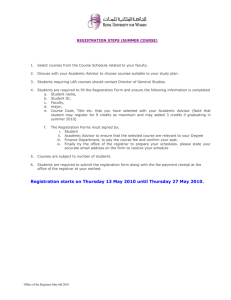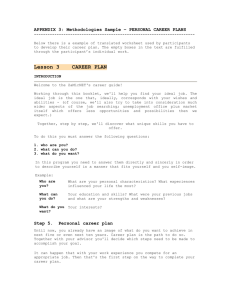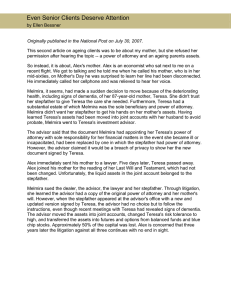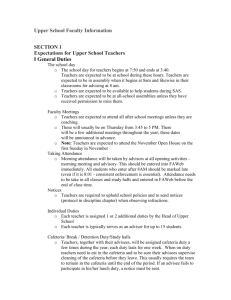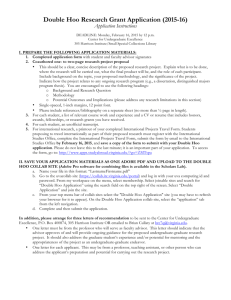Case Study Activity #1 example
advertisement
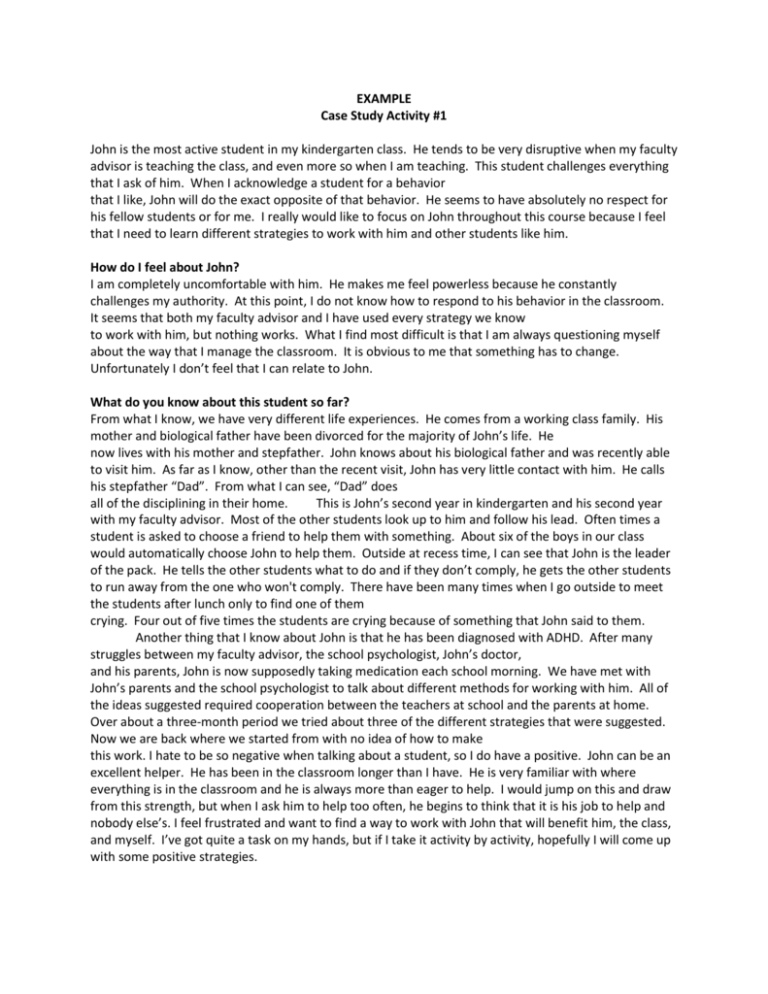
EXAMPLE Case Study Activity #1 John is the most active student in my kindergarten class. He tends to be very disruptive when my faculty advisor is teaching the class, and even more so when I am teaching. This student challenges everything that I ask of him. When I acknowledge a student for a behavior that I like, John will do the exact opposite of that behavior. He seems to have absolutely no respect for his fellow students or for me. I really would like to focus on John throughout this course because I feel that I need to learn different strategies to work with him and other students like him. How do I feel about John? I am completely uncomfortable with him. He makes me feel powerless because he constantly challenges my authority. At this point, I do not know how to respond to his behavior in the classroom. It seems that both my faculty advisor and I have used every strategy we know to work with him, but nothing works. What I find most difficult is that I am always questioning myself about the way that I manage the classroom. It is obvious to me that something has to change. Unfortunately I don’t feel that I can relate to John. What do you know about this student so far? From what I know, we have very different life experiences. He comes from a working class family. His mother and biological father have been divorced for the majority of John’s life. He now lives with his mother and stepfather. John knows about his biological father and was recently able to visit him. As far as I know, other than the recent visit, John has very little contact with him. He calls his stepfather “Dad”. From what I can see, “Dad” does all of the disciplining in their home. This is John’s second year in kindergarten and his second year with my faculty advisor. Most of the other students look up to him and follow his lead. Often times a student is asked to choose a friend to help them with something. About six of the boys in our class would automatically choose John to help them. Outside at recess time, I can see that John is the leader of the pack. He tells the other students what to do and if they don’t comply, he gets the other students to run away from the one who won't comply. There have been many times when I go outside to meet the students after lunch only to find one of them crying. Four out of five times the students are crying because of something that John said to them. Another thing that I know about John is that he has been diagnosed with ADHD. After many struggles between my faculty advisor, the school psychologist, John’s doctor, and his parents, John is now supposedly taking medication each school morning. We have met with John’s parents and the school psychologist to talk about different methods for working with him. All of the ideas suggested required cooperation between the teachers at school and the parents at home. Over about a three-month period we tried about three of the different strategies that were suggested. Now we are back where we started from with no idea of how to make this work. I hate to be so negative when talking about a student, so I do have a positive. John can be an excellent helper. He has been in the classroom longer than I have. He is very familiar with where everything is in the classroom and he is always more than eager to help. I would jump on this and draw from this strength, but when I ask him to help too often, he begins to think that it is his job to help and nobody else’s. I feel frustrated and want to find a way to work with John that will benefit him, the class, and myself. I’ve got quite a task on my hands, but if I take it activity by activity, hopefully I will come up with some positive strategies.





